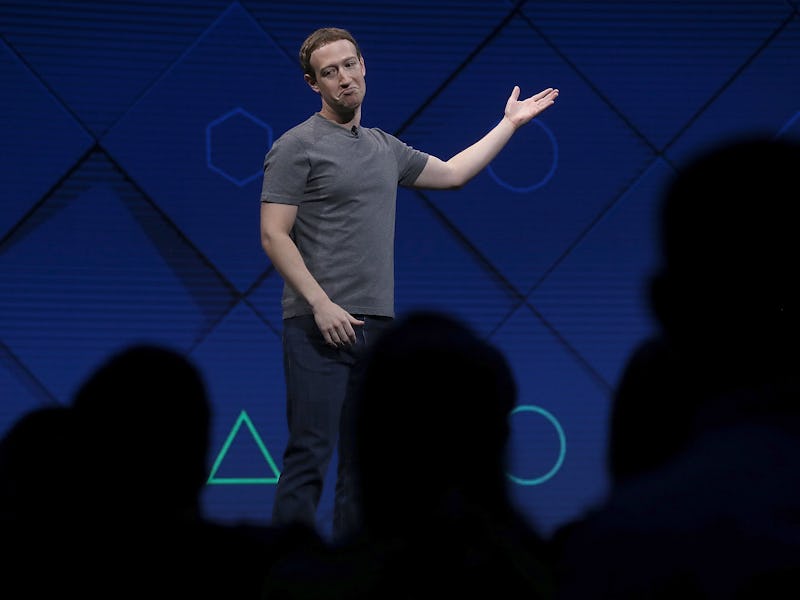Here’s Why Europe Just Dinged Facebook for $122 Million
Busted, buster.

On Thursday, the European Union slapped a $122 million fine on Facebook, dinging Mark Zuckerberg’s social media empire for making some incorrect or misleading statements while it was buying WhatsApp back in 2014.
The European Union Commission announced the fine in a statement on Thursday afternoon. The 110 million euro fine works out to about $122 million, which is a stiff price tag for what Facebook maintains was an unintentional mistake.
The conflict arose over the specific language in the Facebook-WhatsApp merger that dealt with how user accounts would be handled. During the original merger, Facebook told the Commission that it would not be able to automatically match up Facebook users’ accounts and WhatsApp accounts. But in August of 2016, WhatsApp updated its terms of service and added the option to link users’ phone number and Facebook profiles. In and of itself that wouldn’t have been as much of a problem, but a subsequent investigation by the Commission found that matching profiles had been technically possible since 2014, and that “Facebook staff were aware of such a possibility.”
Essentially, Facebook’s original deal said “yeah, we probably won’t be able to automatically match account data across these two platforms we now own,” and then the Commission found out that, whoops, they could totally match that data. For an everyday user, this probably doesn’t mean much: linking your Facebook and WhatsApp accounts is probably really convenient on a day-to-day basis. But the European Commission’s point is that if companies don’t really nail the legalese and technical data when going through a merger, misleading statements or mistakes can create loopholes or opportunities for exploitation, which eventually filters down to the users of that product. Any time you use a free product on the internet, it’s safe to assume that the controlling company is somehow making money off your data, so forcing companies to make correct, explicit statements on what’s going to happen to that data is pretty important.
The E.U. Commission’s top “competition policy” boss, Commissioner Margrethe Vestager, was clear that the fine was making an example of Facebook (for which $122 million is basically a drop of rain in a bucket).
“Today’s decision sends a clear signal to companies that they must comply with all aspects of EU merger rules, including the obligation to provide correct information,” Vestager said in the statement. “And it imposes a proportionate and deterrent fine on Facebook. The Commission must be able to take decisions about mergers’ effects on competition in full knowledge of accurate facts.”
Facebook maintains that it was all just a mix-up, posting the following statement:
We’ve acted in good faith since our very first interactions with the Commission and we’ve sought to provide accurate information at every turn. The errors we made in our 2014 filings were not intentional and the Commission has confirmed that they did not impact the outcome of the merger review. Today’s announcement brings this matter to a close.
And that’s about it for the hundred-million corporate parking ticket — although Facebook isn’t the only corporation that’s been called out by a regulatory agency. Apple had to pay massive sums to Japan and Ireland and Italy for various tax-related shadiness, and Google and Facebook both got dinged for a similar situation in Indonesia last year.